|
|
|
|
Nau mai haere mai – welcome to this week’s newsletter.
As we’ve all come to appreciate over the past 18 months, science is central to any successful pandemic strategy or policy. What’s also becoming evident, however, is that language is crucial too. How we define and describe things matters greatly when it comes to fighting a virus and saving lives.
Most recently, the debate over whether New Zealand has abandoned its elimination strategy quickly became a semantic argument about what elimination actually means, why it’s not the same as eradication, and whether loosening restrictions while cases of community transmission persist is a sign of pragmatism or capitulation.
But nowhere is precision of language more important than when discussing how we might “learn to live with COVID”. As this sobering explanation makes clear, to claim the virus will eventually become “endemic” like the common cold or flu is to profoundly misunderstand what endemic really means.
One common misconception seems to be that it is synonymous with “manageable”. But as the authors bluntly put it, “A disease becomes endemic when it is more or less always present in a population. It does not care whether it is manageable.” And Delta is very far from manageable.
For that reason, the promise of vaccination mandates for health and education workers was mostly welcomed this week. And, as Matheson Russell writes here, the language of ethics is just as important in justifying the use of mandates – and the consequences for those who choose not to be vaccinated.
Until next time, whatever your level and wherever your bubble, ngā mihi nui ki a koutou katoa.
|

|
Finlay Macdonald
New Zealand Senior Editor & NZ Editor: Politics, Business + Arts
|
|
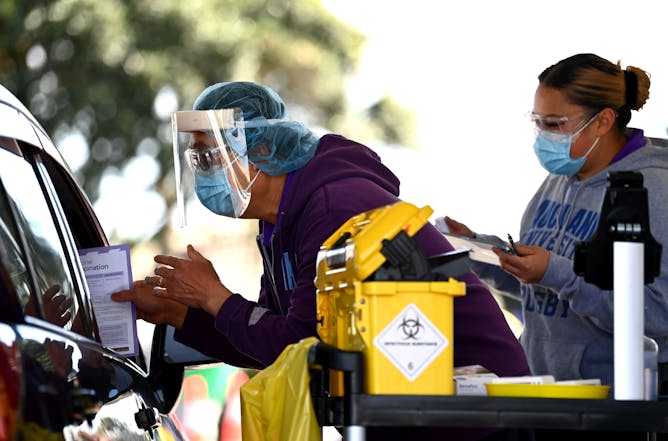
Hannah Peters/Getty Images
John Donne Potter, Massey University; Graham Le Gros, Te Herenga Waka — Victoria University of Wellington; Rod Jackson, University of Auckland
If COVID-19 becomes endemic, we’ll see multiple local outbreaks. Schools and businesses will close for days because too many people are sick. Local hospitals will be overwhelmed without warning.
|
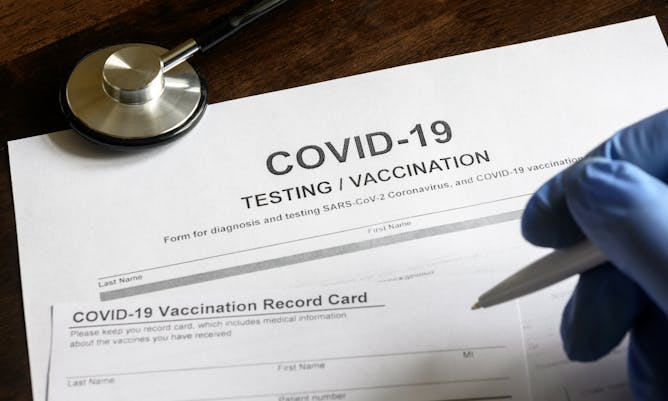
Shutterstock
Matheson Russell, University of Auckland
If mandatory vaccination means exclusion from certain activities in life, sometimes that’s just the price of sticking to one’s convictions.
|

Taiwanese helicopters fly above Taipei rehearsing for a national celebration day, October 5.
GettyImages
Alexander Gillespie, University of Waikato
Forced to balance traditional alliances with its trade-dependent relationship with China, New Zealand walks a fine diplomatic line over Taiwan.
|

Shutterstock
Kathryn MacCallum, University of Canterbury; Cheryl Brown, University of Canterbury
Lockdowns and learning from home have further embedded digital technology in young people’s lives. Educational theory and practice need to catch up fast.
|

Shutterstock
Claire Breen, University of Waikato; Alexander Gillespie, University of Waikato; Robert Joseph, University of Waikato; Valmaine Toki, University of Waikato
New Zealand was named almost by historical accident, and there have been various versions used in the past. But a complete change would still need greater public support.
|
From our international editions
|

Philip Gable, University of Delaware; Chris Wendel, University of Alabama
For the first 12 months of the pandemic, a team of researchers tracked the relationship between emotions, time perception and health-related behaviors like wearing a mask.
| |

Lurion De Mello, Macquarie University
Extreme weather is behind much of the crisis, but it will make the transition to new energy sources more complicated.
|

Stephen Duckett, Grattan Institute
Employers need to go beyond the public health orders to ensure their workers are safe from COVID. Here are four key areas to focus on.
| |
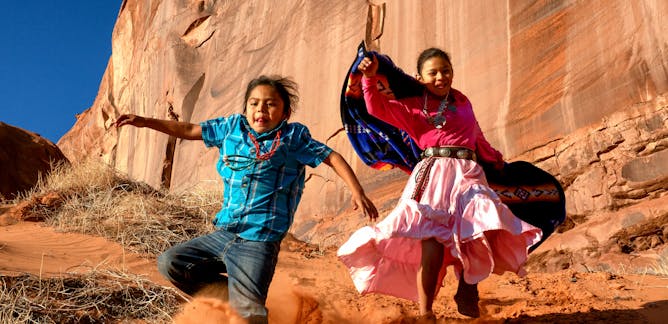
Susan C. Faircloth, Colorado State University
A growing number of states are recognizing Indigenous Peoples Day on what has traditionally been Columbus Day. An education scholar weighs in on what this means for America’s schools.
|
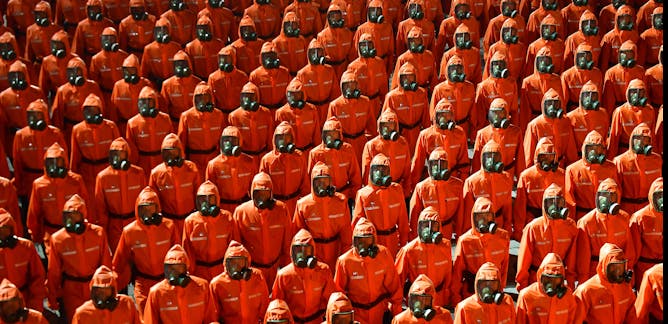
Niki JP Alsford, University of Central Lancashire
Kim Jong-un is simultaneously projecting different images domestically and internationally as food shortages and economic hardship rise.
| |

Christian Yates, University of Bath
The reason for these results has yet to be confirmed – but maths may explain the phenomenon.
|

M Niaz Asadullah, University of Malaya
Indonesia can serve as an important model for the Taliban of how Muslim nations and faith-based organisations can play a big role in expanding girls’ education.
| |

Kuan-Wei Chen, McGill University; Ram S. Jakhu, McGill University; Steven Freeland, Western Sydney University
As the space race is resumed, and expanded to include private corporations, it is more important than ever to lay the groundwork for peaceful collaboration.
|
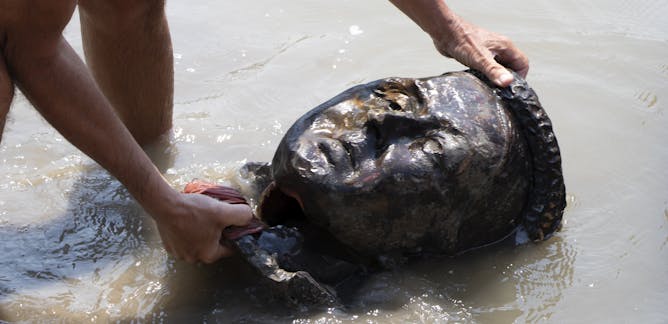
Ian Rocksborough-Smith, University of The Fraser Valley
Movements that challenge former national icons demonstrate the importance of history-making in an age of racial reconciliation. But ‘history wars’ won’t get us anywhere.
| |

Jaishree Raman, National Institute for Communicable Diseases; Shüné Oliver, National Institute for Communicable Diseases
The successful development of an effective vaccine against the deadliest form of malaria that is most common in sub-Saharan Africa is indeed a major achievement.
|
|
|
| |
| |
| |
| |
| |
| |
|
|
|
|
|
|
|